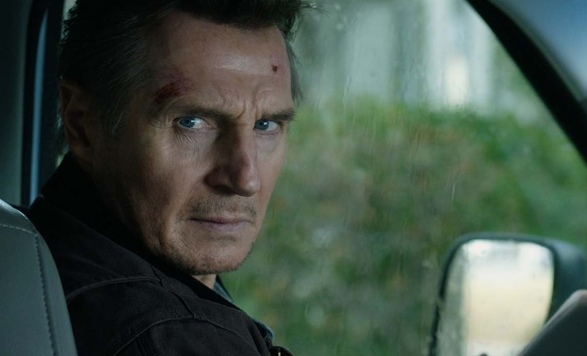FTC Lawyer Sues Over Writing Credits on Liam Neeson Movie
Nick May says he optioned a screenplay to the Ozark co-creator and now finds himself out of the writing credits.

Nick May says he optioned a screenplay to the Ozark co-creator and now finds himself out of the writing credits.
There are a couple of things unusual about a new lawsuit over writing credits to an upcoming Liam Neeson movie entitled Blacklight. For starters, this type of credits dispute may be common, but it’s usually handled in guild arbitration, not court. But perhaps the most conspicuous aspect of the lawsuit is the identity of the plaintiff — Nick May, an assistant regional director at the Federal Trade Commission who supervises staff in enforcement actions over deceptive business practices.
Here, May is bringing a case on a personal basis against Ozark co-creator Mark Williams. According to the complaint filed in Los Angeles Superior Court, May optioned his screenplay to Williams and Alevé Loh, who later filmed the movie in Australia. (In fact, it appears as though Blacklight was one of the first movies to be put into production when the country lifted its COVID lockdown. Williams also directed Honest Thief, which starred Neeson as well and was one of the few to get a theatrical release last summer.)
May acknowledges that Williams made at least some changes like shifting the time period and revising some dialogue, but his suit alleges “Williams’ revisions to the final shooting script in no way rise to the level of a greater-than-50% contribution to the screenplay’s elements—the amount that would be required under the applicable, contracted-for standards to award Williams (as a subsequent writer and production executive) even a shared ‘Screenplay by’ credit for the film. Yet Williams has brazenly accorded himself sole ‘Screenplay by’ and ‘Written by’ credit.”
The difference has financial ramifications, continues the complaint, as May is contractually entitled to three percent of net proceeds in contingent compensation with a “Screenplay by” credit. Without such credit, he gets no net profits on a movie that reportedly cost $43 million to make.
The complaint, handled by attorneys Devin McRae and Zachary Gidding, leans into May’s perspective of being “not the typical mark” and the “irony” that the theme of Blacklight is “speaking truth to power and exposing hidden misconduct.”
Reached for comment, Williams responds, “I have not seen this suit as of yet. Considering I no longer control the rights to the movie or the credit determination, and the movie is still in early post and no credit determination has been made, I believe this may be the case of an overzealous attorney/writer. The writing credits will be arbitrated per the contract, in due course.”
Source: Hollywoodreporter


